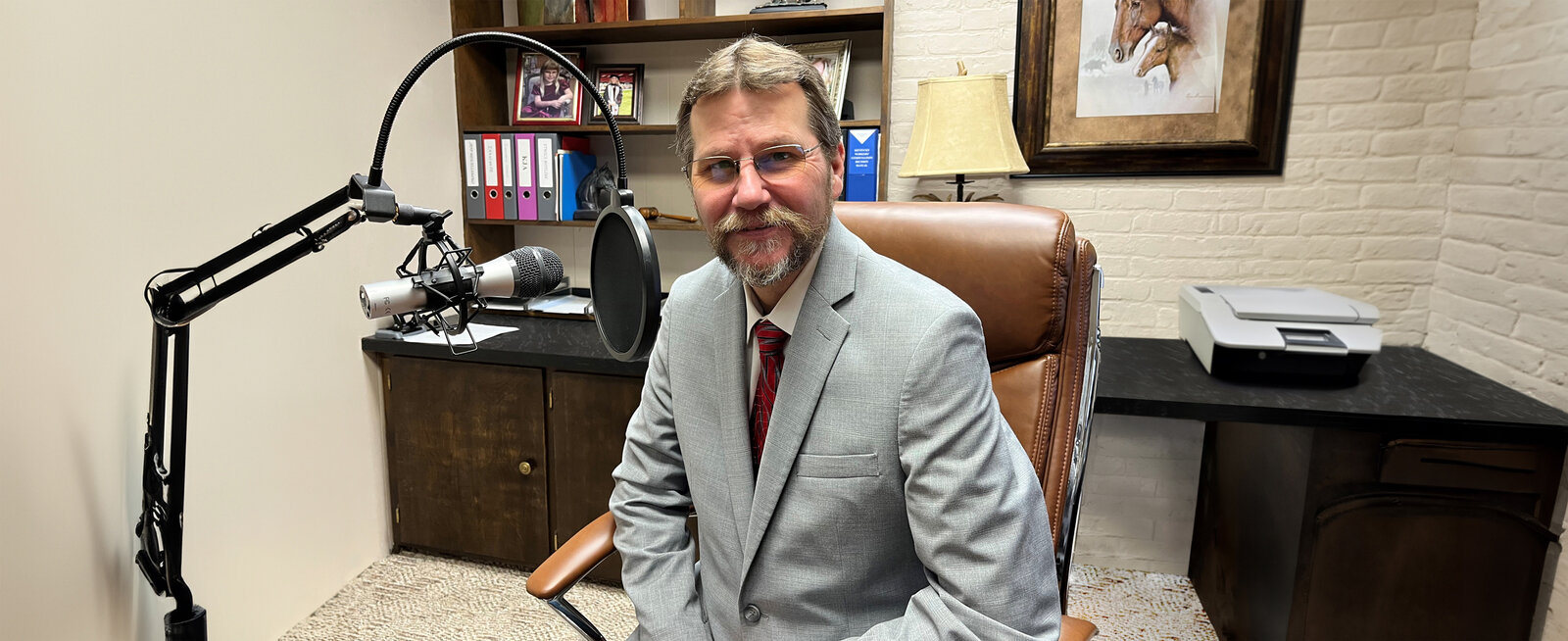Episode 28: In today’s episode, Calloway County Kentucky attorney Jeff Roberts discusses the rights of a passenger in a car wreck. How does he/she get injuries covered and medical bills paid?
Kentucky No-Fault Coverage Applies to Passengers
In Episode 3, Jeff explained that Kentucky offers no-fault coverage for the driver and passengers of any insured vehicle. It’s also referred to as Personal Injury Protection (“PIP”) coverage. This generally provides the first $10,000 to cover medical bills and lost wages for each person.
What Happens if the Driver is Uninsured?
The state of Kentucky requires drivers to carry a minimum of $25,000 in insurance. Unfortunately, some drivers choose to drive without insurance. In this circumstance, that individual driver would not receive no-fault (“PIP”) benefits. However, passengers have access to PIP coverage through the “assigned claims plan” in Kentucky. This plan was set up to cover passengers who are in this situation. If your own automobile policy has added reparations benefits, you may be able to also take advantage of those benefits, in addition.
Do I Have to Hire a Personal Injury Attorney Specifically?
No. In Kentucky, any licensed attorney could actually take your case. It’s really a question of experience. Car wrecks and insurance issues are complicated. If your attorney doesn’t have significant experience handling motor vehicle accidents, they may not be able to negotiate as effectively. An attorney who focuses in this area of law, typically can handle it more efficiently and possibly more effectively.
For example, as a Kentucky licensed attorney, Jeff could handle a divorce or a bankruptcy, but because he doesn’t have experience in these areas, he would turn down those types of cases.
What Are My Automobile Insurance Coverage Limits?
On your insurance policy, there is usually a set of numbers. These are your coverage limits. These number also cover your passenger or passengers. If your policy is a 50/100, it means there is $50,000 of liability coverage for any individual person and a maximum of $100,000 in total coverage for that accident. The PIP coverage of $10,000 would be in addition to these amounts.
What Happens if Multiple People Are Injured?
The second number (i.e. $100,000) is the maximum the policy will pay for this accident. In the case of multiple people, that amount would have to be divided among all of the injured people. Often, the attorneys will try to agree on a priority order. This assumes some of the people are injured worse than others. The clients would have to agree on the order. Attorneys can’t simply make those decisions. Nonetheless, each passenger in a car wreck has rights and those need to be protected.
Sometimes, the injured parties don’t agree on the order. A mediator may be brought in to try to reach an agreement. If the issue still can’t be resolved, it may have to go to trial.
Uninsured Motorist and Under Insured Motorist Coverage (UM/UIM)
Uninsured coverage is there when the at-fault driver doesn’t have insurance. Under Insured coverage is there when the at-fault driver’s insurance is not sufficient to cover all of the damages. In this case, an injured passenger can still be covered by their own personal automobile policy or the policy of the vehicle in which they were riding.
Each automobile insurance policy is different, depending upon the company (i.e. the insurance carrier). You and your attorney will want to read the specific language of the policies involved to see what is specifically covered and how that coverage is to be applied.
Should a Passenger in a Collision Get His/Her Own Attorney?
This can happen fairly often. If you’re a passenger, you may have some hesitation against pursuing a case against a family member, who may have been driving the car at the time of the accident. Remember, while you’re suing the individual, you’re actually pursing a claim against his/her insurance company. In most cases, it’s the insurance company that will ultimately pay the settlement or verdict. You still have rights to recover damages as a passenger in a car wreck.
There’s a possibility that both drivers share some of the fault for the wreck. Kentucky is a pure comparative fault state, which means both sides can be responsible for a certain percentage of the damages. In this situation, a passenger could have a claim against both drivers. The passenger would only be able to recover up to the amount each driver is apportioned. For instance, if one driver is 25% at fault and the other 75% at fault, the total amount of damages would be divided accordingly.
As a Passenger, Will My Rates Go Up if I File a Claim Against My UM/UIM Coverage?
Kentucky law prohibits an insurance company from increasing your premiums, just because you filed against your UM/UIM coverage. Remember, your attorney will typically pursue the driver’s coverage, first. If you decide to also pursue your own UM/UIM coverage, it shouldn’t affect your rates.
Think of the example of roof damage on your house. If this occurs, you’d file a claim against your homeowner’s policy. It’s basically the same for your UM/UIM coverage. You paid your insurance company for this coverage and they accepted your payment. You already have a contract with them for this situation. It’s still your decision, but it’s something for which you’ve already paid.
What Happens if I’m a Passenger Involved in a Motorcycle Collision?
In Kentucky, PIP coverage is not mandatory on a motorcycle. The motorcycle may have passenger PIP. Motorcycle coverage is also often exempted from an automobile insurance policy. Click this link if you’d like to listen to our episode on motorcycle accidents. There would be an opportunity to pursue any available Uninsured Motorist or Under Insured Motorist coverage. A passenger would also have the right to pursue a liability claim against the at-fault driver or drivers.
For more information, visit www.JeffRobertsLaw.com. This podcast is meant to provide information and is not legal advice. Jeff’s principal office is located at 509 Main Street, Murray, Kentucky. Co-host Jim Ray is a non-attorney spokesperson. This is an advertisement.



